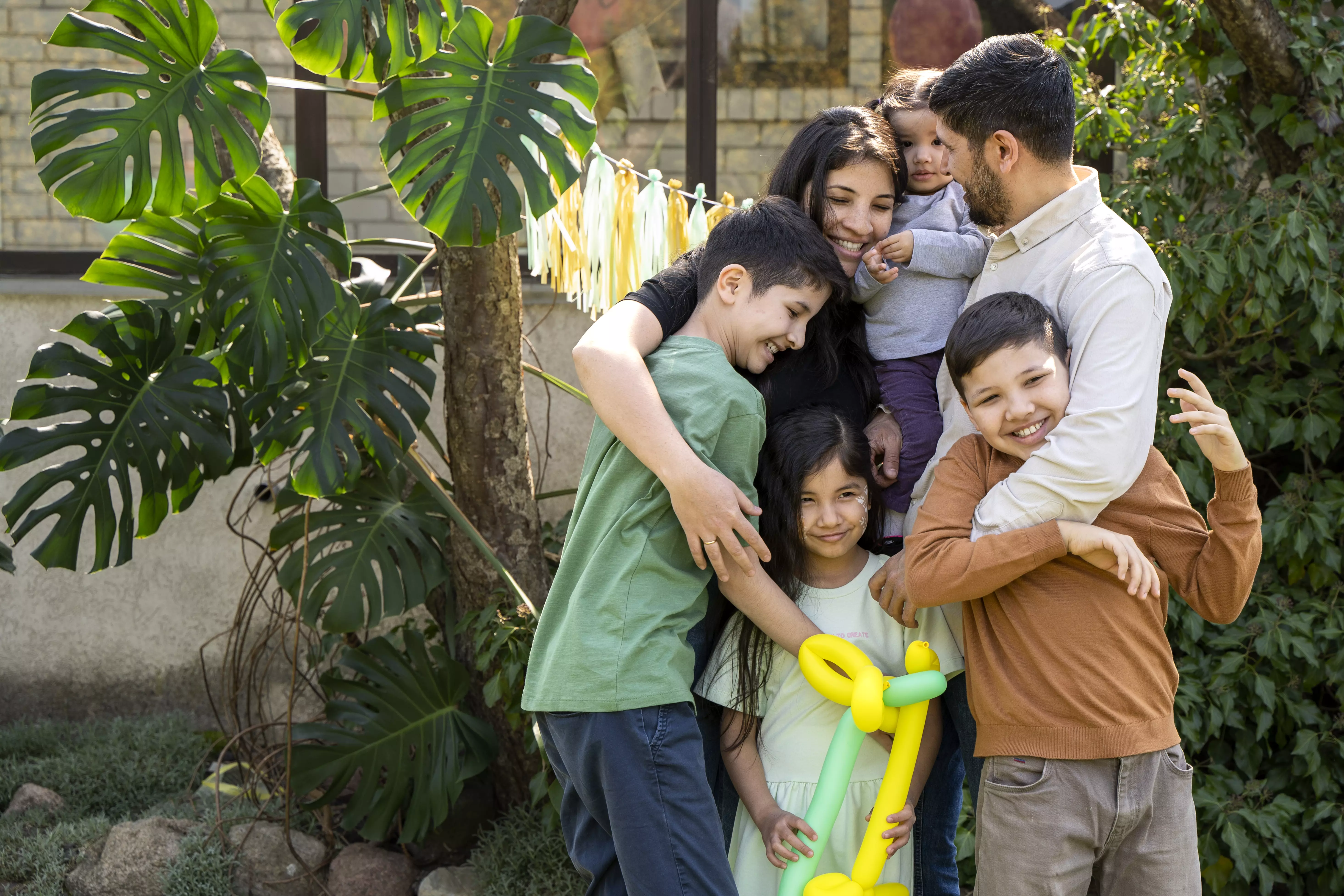Shreya Sen-Handley | It takes a village to save the planet!

“What’s on your mind?” Facebook nudged me into the realisation that family has often been on my mind, and why, despite the changes wrought by time to this institution, it’s still so essential to our lives.
They call family the building block of society, but also popular culture. From I Love Lucy in the fifties to Malcolm in The Middle in the nineties to Modern Family in the noughties, sitcoms have usually focused on the highs and lows of life within a tightly-knit unit.
They’re also a yardstick of how the family has evolved from the traditional married-mom-dad-kids collective to something often more elastic. There’s nothing unusual now about small screen representations of same sex marriages, unmarried partnerships, single parent fams and those of other sorts. The six pals in F*R*I*E*N*D*S were only partially related by blood, and not by marriage at all till nearly the end, but were family to each other from the start.
Not surprising since forming families is what we, humans, instinctively do. Not just humans, animals create collectives too: schools, prides, murders, herds, colonies, and loads more huddles.
In pop music too, a large number of family bands and duos over the ages — The Jacksons, Asha and Lata, ABBA, Lighthouse Family, Sisters Sledge, The Mamas and Papas, Bee Gees, Carpenters, Oasis, Jonas Brothers, I could go on — have had us dancing to their tune. And whatever configuration a family takes, that’s something they have in common — there are house rules to follow.
Equally, there have always been movements breaking away from our instinct to cohabitate. The unthinking obedience demanded before and during the world wars by groups of different shapes and sizes — armies, religions, nations, societies — pushed people into asserting their independence and individuality over subsequent decades, shaping and reshaping society as a result, and the family unit within it.
Almost a century later, as growing isolation exacerbates the global mental health crisis and social cohesion problems (juvenile delinquency, gun crime, etc.), it would be easy to pin it on the breakdown of family, but our war-torn, climate-tossed planet presents many other culprits; shattered economies and the internet’s unsavoury influence amongst them, sequestering people to their artificial little shells.
Yet, no matter how hard these Make-XYZ-Great-Again brigades try to persuade us the past was perfect, a little learning is enough to refute it. The patriarchy’s ironclad fist crushing women, children, and those perceived as different, warranted throwing over through rebellion and reformation.
I did my own share of rebelling, leaving home early to make my own way, crashing in and out of relationships, trashing a great, almost prodigal, career in the process. Then, in my thirties, I started a family and found love and joy again, and, strangely, professional success as well.
But if my family has been my salvation, it doesn’t mean it’s for everyone. Each of us have our own paths to follow to find our brand of nirvana. Marrying under pressure breeds discontent, and never have kids if you’re unsure about them, saving both the trapped parents and unwanted children a great deal of heartache. Our increasingly ailing bodies and ailing planet are amongst other good reasons not to procreate.
Yet, with every passing year, I grow more sure that discovering one’s tribe, however one might gather them, through bloodlines or similar mindsets, is pivotal to individual and collective health.
I know of Western acquaintances who embraced commune-style living in the pandemic to circumvent loneliness, deciding not to abandon their shared lives afterwards, because they’d recognised it appealed to them. I’ve always thought communes, or for that matter, joint families, difficult to live within, with so many pushing and pulling in different directions, and some seeking to lord it over the rest. But it would appear that when VERY loosely linked, mutually beneficial groupings can indeed work!
My parents and aunt live in the same building, though floors apart. Some of my siblings and cousins as well, having returned to Kolkata after years in other Indian cities, have settled within driving distance, with one, putting down roots just three houses down. This seems to have struck a happy balance between retaining their freedom and helping each other out.
I myself rue the distance I have to travel every time I visit my parents. Besides forty whopping hours, much else is lost in travel, including sleep and good health, emerging as I do, nearly every time, with an infection caught on the plane. The aggravation of which feels like nothing compared to the anxiety of living so far from ageing parents!
As I walked arm-in-arm with my two teenagers this Easter through a pretty Yorkshire village, I shared a smidgeon of the wisdom that had come my way in my years of wandering, urging them to explore the world and find themselves, but maybe, if they were in a position to do so, to come back home with their own clans when ready, to roost again near their parents. A tentative suggestion at best, as we’d be behind them whatever they decided, I was glad to see it hadn’t been outrightly dismissed.
Isn’t feeling connected what most humans desire above all else? Considering the conflict and polarisation in our world today, shouldn’t we be doing everything in our power to pull together again? Drawing our family (of every ilk) around us once more might just be that first step. Because it takes a village, a wise woman once said, to make a change. Then, surely, cohorts of cohesive, well-meaning villages will get us there in the end!

